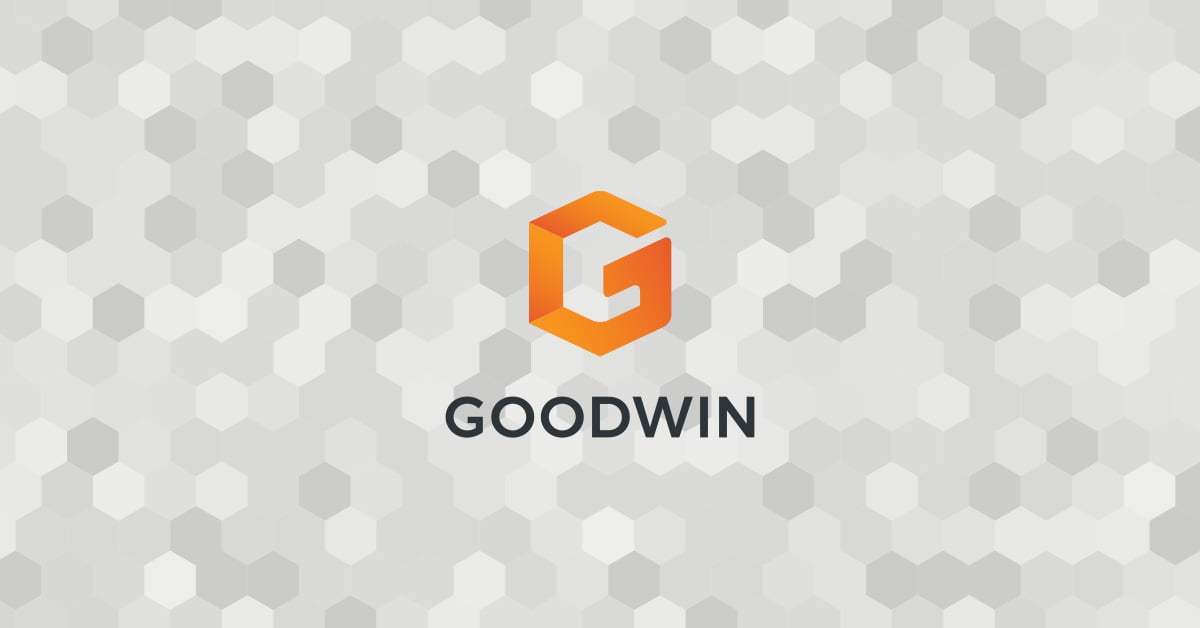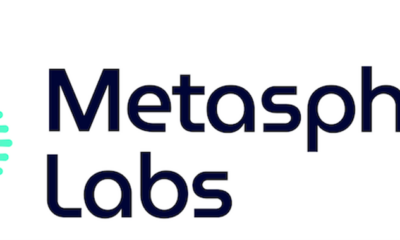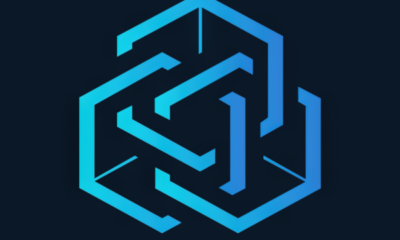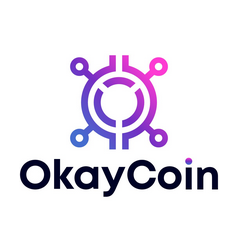News
Argo Blockchain PLC Announces Private Placement With Institutional Investor

Argo Blockchain plc (LSE:ARB)(NASDAQ:ARBK) has announced a private placement of ordinary shares and warrants with an institutional investor, raising gross proceeds of approximately £6.5 million. The company will issue 57,800,000 ordinary shares at £0.1125 per share, along with warrants to purchase an additional 57,800,000 shares at the same price, exercisable over five years. The issuance price represents a premium to recent volume-weighted average prices and a 10% discount to the closing price on July 29, 2024.
The net proceeds will be used for working capital, general corporate purposes, and debt repayment. H.C. Wainwright & Co. is acting as the exclusive placement agent. The placement shares are expected to be admitted to trading on the London Stock Exchange on or about July 31, 2024, bringing the total number of ordinary shares in issue to 636,352,148.
Argo Blockchain plc (LSE:ARB)(NASDAQ:ARBK) ha annunciato un collocamento privato di azioni ordinarie e warrant con un investitore istituzionale, raccogliendo proventi lordi di circa 6,5 milioni di sterline. L’azienda emetterà 57.800.000 azioni ordinarie a £0,1125 per azione, insieme a warrant per l’acquisto di ulteriori 57.800.000 azioni allo stesso prezzo, esercitabili nel corso di cinque anni. Il prezzo di emissione rappresenta un premio rispetto ai recenti prezzi medi ponderati per volume e uno sconto del 10% rispetto al prezzo di chiusura del 29 luglio 2024.
Le entrate nette saranno utilizzate per il capitale circolante, scopi aziendali generali e rimborso del debito. H.C. Wainwright & Co. agirà come agente di collocamento esclusivo. Le azioni del collocamento dovrebbero essere ammesse alla negoziazione sulla Borsa di Londra attorno al 31 luglio 2024, portando il numero totale di azioni ordinarie in circolazione a 636.352.148.
Argo Blockchain plc (LSE:ARB)(NASDAQ:ARBK) ha anunciado un colocación privada de acciones ordinarias y warrants con un inversor institucional, recaudando ingresos brutos de aproximadamente 6,5 millones de libras. La empresa emitirá 57.800.000 acciones ordinarias a £0,1125 por acción, junto con warrants para comprar 57.800.000 acciones adicionales al mismo precio, ejercitables durante cinco años. El precio de emisión representa una prima respecto a los precios promedio ponderados por volumen recientes y un descuento del 10% respecto al precio de cierre del 29 de julio de 2024.
Los ingresos netos se utilizarán para capital de trabajo, fines corporativos generales y pago de deudas. H.C. Wainwright & Co. actuará como agente exclusivo de colocación. Se espera que las acciones del colocación sean admitidas a negociación en la Bolsa de Valores de Londres alrededor del 31 de julio de 2024, llevando el número total de acciones ordinarias en circulación a 636.352.148.
Argo Blockchain plc (LSE:ARB)(NASDAQ:ARBK)는 기관 투자자와 함께 사모 배치를 발표하여 약 650만 파운드의 총 수익을 올렸습니다. 회사는 주당 £0.1125에 57,800,000주의 보통주를 발행하고, 같은 가격으로 추가 57,800,000주를 구매할 수 있는 권리인 워런트를 함께 발행하며, 이는 5년 이내에 행사할 수 있습니다. 발행 가격은 최근 거래량 가중 평균 가격보다 프리미엄을 나타내며 2024년 7월 29일의 종가에 비해 10%의 할인입니다.
순수익은 운전 자본, 일반 기업 목적 및 부채 상환에 사용됩니다. H.C. Wainwright & Co.는 독점 배치 대행을 맡고 있습니다. 배치 주식은 2024년 7월 31일 경 런던 증권거래소에서 거래가 시작될 것으로 예상되며, 보통주의 총 발행 수는 636,352,148주에 이를 것입니다.
Argo Blockchain plc (LSE:ARB)(NASDAQ:ARBK) a annoncé un placement privé d’actions ordinaires et de bons de souscription avec un investisseur institutionnel, levant des produits bruts d’environ 6,5 millions de livres. La société émettra 57.800.000 actions ordinaires à £0,1125 par action, accompagnées de bons de souscription permettant d’acheter 57.800.000 actions supplémentaires au même prix, exerçables sur cinq ans. Le prix d’émission représente une prime par rapport aux prix moyens pondérés par volume récents et une remise de 10 % par rapport au prix de clôture du 29 juillet 2024.
Les produits nets seront utilisés pour le fonds de roulement, des fins d’entreprise générales et le remboursement de dettes. H.C. Wainwright & Co. agit en tant qu’agent de placement exclusif. Les actions du placement devraient être admises à la négociation à la Bourse de Londres autour du 31 juillet 2024, portant le nombre total d’actions ordinaires en circulation à 636.352.148.
Argo Blockchain plc (LSE:ARB)(NASDAQ:ARBK) hat eine Privatplatzierung von Stammaktien und Optionsscheinen mit einem institutionellen Investor angekündigt, dabei wurden brutto etwa 6,5 Millionen Pfund beschafft. Das Unternehmen wird 57.800.000 Stammaktien zu einem Preis von £0,1125 pro Aktie ausgeben, zusammen mit Optionsscheinen zum Kauf von weiteren 57.800.000 Aktien zum gleichen Preis, die über einen Zeitraum von fünf Jahren ausgeübt werden können. Der Ausgabepreis stellt eine Prämie zu den jüngsten volumengewichteten Durchschnittspreisen dar und einen Rabatt von 10 % auf den Schlusskurs vom 29. Juli 2024.
Die netto Einnahmen werden für Betriebskapital, allgemeine Unternehmenszwecke und Schuldenrückzahlung verwendet. H.C. Wainwright & Co. fungiert als exklusiver Platzierungsagent. Die Platzierungsaktien sollen voraussichtlich am oder um den 31. Juli 2024 an der Londoner Börse gehandelt werden, wodurch die Gesamtzahl der ausgegebenen Stammaktien auf 636.352.148 erhöht wird.
Positive
- Raised £6.5 million in gross proceeds through private placement
- Issuance price at a premium to 30, 60, and 90-day VWAPs
- Warrants provide potential for additional future funding
- Proceeds to be used for working capital and debt repayment
Negative
- 10% discount to the closing share price on July 29, 2024
- Potential dilution for existing shareholders if warrants are exercised
Argo Blockchain’s private placement of £6.5 million is a significant development for the company’s financial position. The issuance of 57,800,000 ordinary shares at £0.1125 per share, along with warrants, indicates a strategic move to strengthen their balance sheet. Here are key insights:
- The £0.1125 issuance price, while at a 10% discount to the closing price, is actually at a premium to recent volume-weighted average prices (VWAPs). This suggests investor confidence in Argo’s future prospects.
- The inclusion of warrants with a five-year exercise period at the same price as the issued shares provides potential for additional capital infusion in the future, totaling up to another £6.5 million if fully exercised.
- The stated use of proceeds for working capital, general corporate purposes and debt repayment indicates a focus on improving the company’s financial flexibility and reducing leverage.
However, investors should note the dilutive effect of this placement. The additional 57,800,000 shares will increase the total outstanding shares to 636,352,148, representing a dilution of approximately 9.1%. While this may pressure the stock in the short term, the improved financial position could support long-term value creation if managed effectively.
The involvement of H.C. Wainwright & Co. as the exclusive placement agent lends credibility to the transaction, potentially signaling institutional interest in the blockchain and cryptocurrency mining sector despite recent market volatility.
This private placement for Argo Blockchain, a prominent player in the cryptocurrency mining space, carries several implications for the company and the broader blockchain industry:
- Capital Intensive Nature: The need for additional funding underscores the capital-intensive nature of cryptocurrency mining operations. As mining difficulty increases and energy costs fluctuate, companies like Argo must continually invest in infrastructure and technology to remain competitive.
- Market Sentiment: The successful placement, especially at a premium to recent VWAPs, suggests that institutional investors maintain interest in the blockchain sector despite the crypto market’s volatility. This could be seen as a positive indicator for the industry’s long-term prospects.
- Strategic Positioning: By strengthening its balance sheet, Argo is potentially positioning itself to capitalize on market opportunities, such as acquiring discounted mining equipment or expanding operations during a period when smaller competitors might be struggling.
However, it’s important to consider the broader context. The cryptocurrency mining industry faces ongoing challenges, including regulatory scrutiny, environmental concerns and the upcoming Bitcoin halving event. Argo’s ability to navigate these challenges while effectively utilizing the new capital will be critical for its future success.
Investors should monitor how Argo deploys this capital, particularly in terms of energy efficiency improvements or diversification of operations, as these factors could significantly impact the company’s competitiveness and sustainability in the evolving blockchain landscape.
Argo Blockchain’s private placement offers intriguing insights into the current state of the cryptocurrency mining market and investor sentiment:
- Investor Appetite: The successful placement, particularly with an institutional investor, suggests there’s still appetite for exposure to the crypto mining sector, despite the recent market downturn. This could indicate a belief in the long-term viability of blockchain technology and cryptocurrencies.
- Valuation Metrics: The issuance price being at a premium to recent VWAPs but a discount to the current market price presents an interesting valuation dynamic. It might suggest that investors see current market prices as somewhat inflated, but still believe in the company’s longer-term prospects.
- Industry Consolidation: With Argo securing additional funding, we might be witnessing a phase of industry consolidation. Stronger players like Argo could be positioning themselves to acquire assets or market share from struggling competitors, potentially reshaping the competitive landscape.
From a broader market perspective, this transaction could be seen as a litmus test for investor sentiment towards the crypto mining sector. The successful placement might encourage other companies in the space to seek similar funding arrangements, potentially leading to increased M&A activity or capital raises in the sector.
However, it’s important to note that while this placement provides Argo with additional financial flexibility, it doesn’t necessarily signal an immediate turnaround for the crypto mining industry as a whole. Investors should continue to monitor broader trends such as Bitcoin price movements, regulatory developments and technological advancements in mining efficiency, as these factors will ultimately drive the sector’s long-term viability and profitability.
07/30/2024 – 02:00 AM
LONDON, UNITED KINGDOM / ACCESSWIRE / July 30, 2024 / Argo Blockchain plc, (LSE:ARB)(NASDAQ:ARBK), is pleased to announce that it has entered into a securities purchase agreement for a private placement of its ordinary shares (“Ordinary Shares”) and accompanying warrants to purchase Ordinary Shares to an institutional investor for gross proceeds of approximately GBP £6.5 million (the “Private Placement”). Pursuant to the Private Placement, the Company will issue 57,800,000 Ordinary Shares (the “Placement Shares”) at a purchase price of GBP £0.1125 per Ordinary Share along with warrants to purchase up to 57,800,000 Ordinary Shares (the “Warrants”). The Warrants have an exercise price of GBP £0.1125 per share and an exercise period of five years.
The issuance price is at a premium to the 30 day VWAP, 60 day VWAP and 90 day VWAP and at a 10% discount to the closing middle market price of an Ordinary Share on the London Stock Exchange on 29 July 2024.
H.C. Wainwright & Co. is acting as the exclusive placement agent for the Private Placement.
The net proceeds of the Private Placement will be used by the Company for working capital and general corporate purposes, including the repayment of indebtedness.
Application will be made for the Placement Shares and the shares issuable upon exercise of the Warrants (the “Warrant Shares”), if exercised, to be admitted to the Official List and to trading on the Main Market of the London Stock Exchange. Admission of the Placement Shares and the closing of the Private Placement are expected to occur on or about 31 July 2024 (“Admission”). The Placement Shares and Warrant Shares, if any, will rank pari passu with the existing Ordinary Shares of the Company.
Following Admission, the total number of Ordinary Shares in issue will be 636,352,148, and the total number of voting rights will therefore be 636,352,148. This figure may be used by shareholders as the denominator for the calculations by which they will determine if they are required to notify their interest in, or a change to their interest in, the share capital of the Company under the FCA’s Disclosure Guidance and Transparency Rules.
The securities being offered have not been, nor will they be, registered under the United States Securities Act of 1933, as amended, and such securities may not be offered or sold within the United States absent registration under U.S. federal and state securities laws or an applicable exemption from such U.S. registration requirements.
This announcement shall not constitute an offer to sell or the solicitation of an offer to buy nor shall there be any sale of the securities in any jurisdiction in which such offer, solicitation or sale would be unlawful prior to registration or qualification under the securities laws of any such jurisdiction.
Forward looking statements
This announcement contains “forward-looking statements,” which can be identified by words like “may,” “will,” “likely,” “should,” “expect,” “anticipate,” “future,” “plan,” “believe,” “intend,” “goal,” “seek,” “estimate,” “project,” “continue” and similar expressions. Forward-looking statements are neither historical facts nor assurances of future performance. Instead, they are based only on the Company’s current beliefs, expectations and assumptions regarding the future of its business, future plans and strategies, projections, anticipated events and trends, the economy and other future conditions. Because forward-looking statements relate to the future, they are subject to inherent uncertainties, risks and changes in circumstances that are difficult to predict and many of which are outside of the Company’s control. The information in this announcement about future plans and objectives of the Company, including the expectation to complete the Private Placement and the expected expenditure of the net proceeds of the Private Placement, are forward-looking statements. The Company’s actual results and financial condition may differ materially from those indicated in the forward-looking statements. Therefore, you should not rely on any of these forward-looking statements. Important factors that could cause the Company’s actual results and financial condition to differ materially from those indicated in the forward-looking statements include, market and other conditions, the principal risks and uncertainties listed in the risk factors set forth in our Annual Report and Financial Statements and Form 20-F for the year ended December 31, 2023, and our Interim Report as of March 31, 2024.
For further information please contact:
About Argo:
Argo Blockchain plc is a dual-listed (LSE: ARB; NASDAQ: ARBK) blockchain technology company focused on large-scale cryptocurrency mining. With mining operations in Quebec and Texas, and offices in the US, Canada, and the UK, Argo’s global, sustainable operations are predominantly powered by renewable energy. In 2021, Argo became the first climate positive cryptocurrency mining company, and a signatory to the Crypto Climate Accord. For more information, visit www.argoblockchain.com.
This information is provided by RNS, the news service of the London Stock Exchange. RNS is approved by the Financial Conduct Authority to act as a Primary Information Provider in the United Kingdom. Terms and conditions relating to the use and distribution of this information may apply. For further information, please contact [email protected] or visit www.rns.com.
SOURCE: Argo Blockchain PLC
View the original press release on accesswire.com
![]()
FAQ
How much did Argo Blockchain (ARBK) raise in its private placement on July 30, 2024?
Argo Blockchain raised approximately £6.5 million in gross proceeds through a private placement of ordinary shares and warrants with an institutional investor.
What is the exercise price and duration of the warrants issued by Argo Blockchain (ARBK) in the July 2024 private placement?
The warrants have an exercise price of £0.1125 per share and an exercise period of five years.
How many ordinary shares will Argo Blockchain (ARBK) have in issue after the July 2024 private placement?
Following the admission of the new shares, Argo Blockchain will have a total of 636,352,148 ordinary shares in issue.
What will Argo Blockchain (ARBK) use the proceeds from the July 2024 private placement for?
The net proceeds will be used for working capital, general corporate purposes, and the repayment of indebtedness.
News
Terra Can’t Catch a Break as Blockchain Gets $6 Million Exploited

The attack, which exploited a vulnerability disclosed in April, drained around 60 million ASTRO tokens, sending the price plummeting.
The Terra blockchain has been exploited for over $6 million, forcing developers to take a momentary break the chain.
Beosin Cyber Security Company reported that the protocol lost 60 million ASTRO tokens, 3.5 million USDC, 500,000 USDT, and 2.7 BTC or $180,000.
Terra developers paused the chain on Wednesday morning to apply an emergency patch that would address the attack. Moments later, a 67% majority of validators upgraded their nodes and resumed block production.
The ASTRO token has plunged as much as 75%. It is now trading at $0.03, a 25% decline on the day. Traders who took advantage of the drop are now on 195%.
The vulnerability that took down the Cosmos-based blockchain was disclosed in April and involved the deployment of a malicious CosmWasm contract. It opened the door to attacks via what is called an “ibc-hooks callback timeout reentrancy vulnerability,” which is used to invoke contracts and enable cross-chain swaps.
Terra 2.0 also suffered a massive drop in total value locked (TVL) in April, shortly after the vulnerability was discovered. It plunged 80% to $6 million from $30 million in TVL and has since lost nearly half of that value, currently sitting at $3.9 million.
The current Earth chain emerged from the rubble as a hard fork after the original blockchain, now called Terra Classic, collapsed in 2022. Terra collapsed after its algorithmic stablecoin (UST) lost its peg, causing a run on deposits. More than $50 billion of UST’s market cap was wiped out in a matter of days.
Terraform Labs, the company behind the blockchain, has been slowly unravelling its legal woes since its mid-2022 crash. Founder Do Kwon awaits sentencing in Montenegro after he and his company were found liable for $40 billion in customer funds in early April.
On June 12, Terraform Labs settled with the SEC for $4.4 billion, for which the company will pay about $3.59 billion plus interest and a $420 million penalty. Meanwhile, Kwon will pay $204.3 million, including $110 million in restitution, interest and an $80 million penalty, a court filing showed.
News
Google and Coinbase Veterans Raise $5M to Build Icebreaker, Blockchain’s Answer to LinkedIn

Icebreaker: Think LinkedIn but on a Blockchain—announced Wednesday that it has secured $5 million in seed funding. CoinFund led the round, with participation from Accomplice, Anagram, and Legion Capital, among others.
The company, which is valued at $21 million, aims to become the world’s first open-source network for professional connections. Its co-founders, Dan Stone and Jack Dillé, come from Google AND Monetary base; Stone was a product manager at the cryptocurrency giant and also the co-creator of Google’s largest multi-identity measurement and marketing platform, while Dillé was a design manager for Google Working area.

The pair founded Icebreaker on the shared belief that the imprint of one’s digital identity (and reputation) should not be owned by a single entity, but rather publicly owned and accessible to all. Frustrated that platforms like LinkedIn To limit how we leverage our connections, Dillé told Fortune he hopes to remove paywalls and credits, which “force us to pay just to browse our network.” Using blockchain technology, Icebreaker lets users transfer their existing professional profile and network into a single, verified channel.
“Imagine clicking the login button and then seeing your entire network on LinkedIn, ChirpingFarcaster and email? Imagine how many introductions could be routed more effectively if you could see the full picture of how you’re connected to someone,” Stone told Fortune.
Users can instantly prove their credentials and provide verifiable endorsements for people in their network. The idea is to create an “open graph of reputation and identity,” according to the founders. They hope to challenge LinkedIn’s closed network that “secures data,” freeing users to search for candidates and opportunities wherever they are online. By building on-chain, the founders note, they will create a public ledger of shared context and trust.
Verified channels are now launched for
Chirping
Online Guide
Wallet
Discord
Telephone
TeleporterYou can find them in Account -> Linked Accounts Italian: https://t.co/mRDyuWW8O2
— Icebreaker (@icebreaker_xyz) April 3, 2024
“Digital networking is increasingly saturated with noise and AI-driven fake personas,” the founders said in a statement. For example: Dillé’s LinkedIn headline reads “CEO of Google,” a small piece of digital performance art to draw attention to unverifiable information on Web2 social networks that can leave both candidates and recruiters vulnerable to false claims.
“Icebreaker was created to enable professionals to seamlessly tap into their existing profiles and networks to surface exceptional people and opportunities, using recent advances in cryptographically verifiable identity,” the company said, adding that the new funding will go towards expanding its team and developing products.
“One of the next significant use cases for cryptocurrency is the development of fundamental social graphs for applications to leverage… We are proud to support Dan, Jack and their team in their mission to bring true professional identity ownership to everyone online,” said CoinFund CIO Alex Felix in a statement.
Learn more about all things cryptocurrency with short, easy-to-read flashcards. Click here to Fortune’s Crash Course in Cryptocurrency.
Fuente
News
Luxembourg proposes updates to blockchain laws | Insights and resources

On July 24, 2024, the Ministry of Finance proposed Blockchain Bill IVwhich will provide greater flexibility and legal certainty for issuers using Distributed Ledger Technology (DLT). The bill will update three of Luxembourg’s financial laws, the Law of 6 April 2013 on dematerialised securitiesTHE Law of 5 April 1993 on the financial sector and the Law of 23 December 1998 establishing a financial sector supervisory commissionThis bill includes the additional option of a supervisory agent role and the inclusion of equity securities in dematerialized form.
DLT and Luxembourg
DLT is increasingly used in the financial and fund management sector in Luxembourg, offering numerous benefits and transforming various aspects of the industry.
Here are some examples:
- Digital Bonds: Luxembourg has seen multiple digital bond issuances via DLT. For example, the European Investment Bank has issued bonds that are registered, transferred and stored via DLT processes. These bonds are governed by Luxembourg law and registered on proprietary DLT platforms.
- Fund Administration: DLT can streamline fund administration processes, offering new opportunities and efficiencies for intermediaries, and can do the following:
- Automate capital calls and distributions using smart contracts,
- Simplify audits and ensure reporting accuracy through transparent and immutable transaction records.
- Warranty Management: Luxembourg-based DLT platforms allow clients to swap ownership of baskets of securities between different collateral pools at precise times.
- Tokenization: DLT is used to tokenize various assets, including real estate and luxury goods, by representing them in a tokenized and fractionalized format on the blockchain. This process can improve the liquidity and accessibility of traditionally illiquid assets.
- Tokenization of investment funds: DLT is being explored for the tokenization of investment funds, which can streamline the supply chain, reduce costs, and enable faster transactions. DLT can automate various elements of the supply chain, reducing the need for reconciliations between entities such as custodians, administrators, and investment managers.
- Issuance, settlement and payment platforms:Market participants are developing trusted networks using DLT technology to serve as a single source of shared truth among participants in financial instrument investment ecosystems.
- Legal framework: Luxembourg has adapted its legal framework to accommodate DLT, recognising the validity and enforceability of DLT-based financial instruments. This includes the following:
- Allow the use of DLT for the issuance of dematerialized securities,
- Recognize DLT for the circulation of securities,
- Enabling financial collateral arrangements on DLT financial instruments.
- Regulatory compliance: DLT can improve transparency in fund share ownership and regulatory compliance, providing fund managers with new opportunities for liquidity management and operational efficiency.
- Financial inclusion: By leveraging DLT, Luxembourg aims to promote greater financial inclusion and participation, potentially creating a more diverse and resilient financial system.
- Governance and ethics:The implementation of DLT can promote higher standards of governance and ethics, contributing to a more sustainable and responsible financial sector.
Luxembourg’s approach to DLT in finance and fund management is characterised by a principle of technology neutrality, recognising that innovative processes and technologies can contribute to improving financial services. This is exemplified by its commitment to creating a compatible legal and regulatory framework.
Short story
Luxembourg has already enacted three major blockchain-related laws, often referred to as Blockchain I, II and III.
Blockchain Law I (2019): This law, passed on March 1, 2019, was one of the first in the EU to recognize blockchain as equivalent to traditional transactions. It allowed the use of DLT for account registration, transfer, and materialization of securities.
Blockchain Law II (2021): Enacted on 22 January 2021, this law strengthened the Luxembourg legal framework on dematerialised securities. It recognised the possibility of using secure electronic registration mechanisms to issue such securities and expanded access for all credit institutions and investment firms.
Blockchain Act III (2023): Also known as Bill 8055, this is the most recent law in the blockchain field and was passed on March 14, 2023. This law has integrated the Luxembourg DLT framework in the following way:
- Update of the Act of 5 August 2005 on provisions relating to financial collateral to enable the use of electronic DLT as collateral on financial instruments registered in securities accounts,
- Implementation of EU Regulation 2022/858 on a pilot scheme for DLT-based market infrastructures (DLT Pilot Regulation),
- Redefining the notion of financial instruments in Law of 5 April 1993 on the financial sector and the Law of 30 May 2018 on financial instruments markets to align with the corresponding European regulations, including MiFID.
The Blockchain III Act strengthened the collateral rules for digital assets and aimed to increase legal certainty by allowing securities accounts on DLT to be pledged, while maintaining the efficient system of the 2005 Act on Financial Collateral Arrangements.
With the Blockchain IV bill, Luxembourg will build on the foundations laid by previous Blockchain laws and aims to consolidate Luxembourg’s position as a leading hub for financial innovation in Europe.
Blockchain Bill IV
The key provisions of the Blockchain IV bill include the following:
- Expanded scope: The bill expands the Luxembourg DLT legal framework to include equity securities in addition to debt securities. This expansion will allow the fund industry and transfer agents to use DLT to manage registers of shares and units, as well as to process fund shares.
- New role of the control agent: The bill introduces the role of a control agent as an alternative to the central account custodian for the issuance of dematerialised securities via DLT. This control agent can be an EU investment firm or a credit institution chosen by the issuer. This new role does not replace the current central account custodian, but, like all other roles, it must be notified to the Commission de Surveillance du Secteur Financier (CSSF), which is designated as the competent supervisory authority. The notification must be submitted two months after the control agent starts its activities.
- Responsibilities of the control agent: The control agent will manage the securities issuance account, verify the consistency between the securities issued and those registered on the DLT network, and supervise the chain of custody of the securities at the account holder and investor level.
- Simplified payment processesThe bill allows issuers to meet payment obligations under securities (such as interest, dividends or repayments) as soon as they have paid the relevant amounts to the paying agent, settlement agent or central account custodian.
- Simplified issuance and reconciliationThe bill simplifies the process of issuing, holding and reconciling dematerialized securities through DLT, eliminating the need for a central custodian to have a second level of custody and allowing securities to be credited directly to the accounts of investors or their delegates.
- Smart Contract Integration:The new processes can be executed using smart contracts with the assistance of the control agent, potentially increasing efficiency and reducing intermediation.
These changes are expected to bring several benefits to the Luxembourg financial sector, including:
- Fund Operations: Greater efficiency and reduced costs by leveraging DLT for the issuance and transfer of fund shares.
- Financial transactions: Greater transparency and security.
- Transparency of the regulatory environment: Increased attractiveness and competitiveness of the Luxembourg financial centre through greater legal clarity and flexibility for issuers and investors using DLT.
- Smart Contracts: Potential for automation of contractual terms, reduction of intermediaries and improvement of transaction traceability through smart contracts.
Blockchain Bill IV is part of Luxembourg’s ongoing strategy to develop a strong digital ecosystem as part of its economy and maintain its status as a leading hub for financial innovation. Luxembourg is positioning itself at the forefront of Europe’s growing digital financial landscape by constantly updating its regulatory framework.
Local regulations, such as Luxembourg law, complement European regulations by providing a more specific legal framework, adapted to local specificities. These local laws, together with European initiatives, aim to improve both the use and the security of projects involving new technologies. They help establish clear standards and promote consumer trust, while promoting innovation and ensuring better protection against potential risks associated with these emerging technologies. Check out our latest posts on these topics and, for more information on this law, blockchain technology and the tokenization mechanism, do not hesitate to contact us.
We are available to discuss any project related to digital finance, cryptocurrencies and disruptive technologies.
This informational piece, which may be considered advertising under the ethics rules of some jurisdictions, is provided with the understanding that it does not constitute the rendering of legal or other professional advice by Goodwin or its attorneys. Past results do not guarantee a similar outcome.
News
New bill pushes Department of Veterans Affairs to examine how blockchain can improve its work

The Department of Veterans Affairs would have to evaluate how blockchain technology could be used to improve benefits and services offered to veterans, according to a legislative proposal introduced Tuesday.
The bill, sponsored by Rep. Nancy Mace, R-S.C., would direct the VA to “conduct a comprehensive study of the feasibility, potential benefits, and risks associated with using distributed ledger technology in various programs and services.”
Distributed ledger technology, including blockchain, is used to protect and track information by storing data across multiple computers and keeping a record of its use.
According to the text of the legislation, which Mace’s office shared exclusively with Nextgov/FCW ahead of its publication, blockchain “could significantly improve benefits allocation, insurance program management, and recordkeeping within the Department of Veterans Affairs.”
“We need to bring the federal government into the 21st century,” Mace said in a statement. “This bill will open the door to research on improving outdated systems that fail our veterans because we owe it to them to use every tool at our disposal to improve their lives.”
Within one year of the law taking effect, the Department of Veterans Affairs will be required to submit a report to the House and Senate Veterans Affairs committees detailing its findings, as well as the benefits and risks identified in using the technology.
The mandatory review is expected to include information on how the department’s use of blockchain could improve the way benefits decisions are administered, improve the management and security of veterans’ personal data, streamline the insurance claims process, and “increase transparency and accountability in service delivery.”
The Department of Veterans Affairs has been studying the potential benefits of using distributed ledger technology, with the department emission a request for information in November 2021 seeking input from contractors on how blockchain could be leveraged, in part, to streamline its supply chains and “secure data sharing between institutions.”
The VA’s National Institute of Artificial Intelligence has also valued the use of blockchain, with three of the use cases tested during the 2021 AI tech sprint focused on examining its capabilities.
Mace previously introduced a May bill that would direct Customs and Border Protection to create a public blockchain platform to store and share data collected at U.S. borders.
Lawmakers also proposed additional measures that would push the Department of Veterans Affairs to consider adopting other modernized technologies to improve veteran services.
Rep. David Valadao, R-Calif., introduced legislation in June that would have directed the department to report to lawmakers on how it plans to expand the use of “certain automation tools” to process veterans’ claims. The House of Representatives Subcommittee on Disability Assistance and Memorial Affairs gave a favorable hearing on the congressman’s bill during a Markup of July 23.
-

 Videos9 months ago
Videos9 months agoCrypto News: Bitcoin, ETH Price, CPI Print, PYTH, WIF & MORE!!
-

 Videos9 months ago
Videos9 months agoCrypto News: Bitcoin Price, ETF, ETH, WIF, HNT & MORE!!
-

 DeFi9 months ago
DeFi9 months agoMetasphere Labs announces follow-up event regarding
-

 Videos9 months ago
Videos9 months agoSolana price potential?! Check out THIS update if you own SOL!!
-

 Videos8 months ago
Videos8 months agoWho Really CONTROLS THE MARKETS!! Her plans REVEALED!!
-

 DeFi6 months ago
DeFi6 months agoPump.Fun Overtakes Ethereum in Daily Revenue: A New Leader in DeFi
-

 News6 months ago
News6 months agoNew bill pushes Department of Veterans Affairs to examine how blockchain can improve its work
-

 DeFi6 months ago
DeFi6 months agoDegens Can Now Create Memecoins From Tweets
-

 News6 months ago
News6 months agoLawmakers, regulators to study impact of blockchain and cryptocurrency in Alabama • Alabama Reflector
-

 Bitcoin6 months ago
Bitcoin6 months ago1 Top Cryptocurrency That Could Surge Over 4,300%, According to This Wall Street Firm
-

 Ethereum8 months ago
Ethereum8 months agoComment deux frères auraient dérobé 25 millions de dollars lors d’un braquage d’Ethereum de 12 secondes • The Register
-

 Videos8 months ago
Videos8 months agoCryptocurrency News: BTC Rally, ETH, SOL, FTM, USDT Recover & MORE!













 ASTRO Price
ASTRO Price



